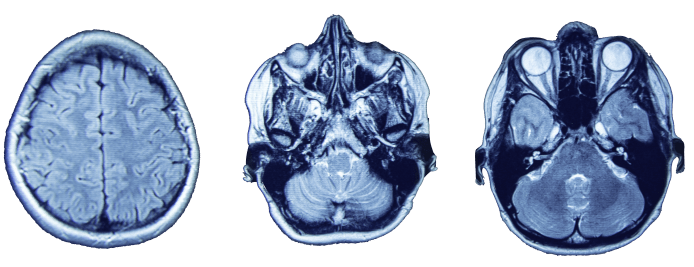A traumatic brain injury (TBI) occurs when a person sustains trauma to the head. There are many ways that this can occur, including during birth and injuries can range from relatively mild to extremely severe. Even minor TBIs require treatment, and the road to recovery can be long and challenging. The most severe TBIs may permanently affect a person’s physical or cognitive function, as well as their emotional responses.
Types of Traumatic Brain Injuries
Injuries to the brain can vary, depending on how the trauma was sustained. TBIs may include:
- Concussion: This is the most common type of TBI and is usually mild, but can result in post-concussion syndrome, which can take up to a year to recover from
- Contusion: Bruising of the brain, which can cause swelling
- Diffuse axonal injury: Tearing of the brain caused by rapid back and forth movement, such as whiplash
- Coup-contracoup: Injuries on both sides of the brain, caused by the initial impact on one side and the slamming of the brain into the skull on the direct opposite side
- Penetration: Occurs when parts of the skull are forced to enter the brain by a sharp object, such as a knife or bullet
- Hematoma or blood clot: Swelling caused by blood pooling in areas of the brain
Symptoms of TBIs
TBIs are especially dangerous because they may not be apparent right away. The initial injury, known as the primary injury, causes damage to the brain, but that damage can worsen as time passes and brain cells continue to die. Symptoms may not appear until later and delaying treatment can worsen the effects of the injury, making a full recovery more difficult. Common symptoms that may appear after a brain injury are:
- Headache or pressure
- Dizziness
- Blurry vision or sensitivity to light
- Ringing in the ears
- Confusion or trouble concentrating
- Slurred speech
- Fatigue
- Loss of consciousness
- Nausea or vomiting
- Memory loss
- Personality changes or mood swings
- Sleep problems
- Sensitivity to certain tastes and smells
Anyone experiencing these symptoms after an accident should see a doctor immediately. Symptoms may appear differently in each patient, so even if they are not experiencing all the symptoms, they should get tested for a TBI.
Auto Accident Brain Injuries
The cause of a TBI can vary greatly; there are many situations in which a person can be at risk for a TBI, including workplace accidents, sports injuries, slips and falls, or assault. Car accidents are the most common, accounting for about half of all TBIs. The impact of the collision can cause the head to hit the steering wheel, windshield, headrest, airbag, or other objects, resulting in severe trauma that may include open wounds. Auto accidents can also cause diffuse axonal injuries and coup-contracoup injuries, as the body is rapidly jerked around due to sudden deceleration. The head moves faster than the soft brain tissue inside, causing tears and bruising inside the skull.
Depending on the nature and severity of the injury, it is possible for many patients to make a full recovery with proper treatment. Others may suffer lasting effects from their injury, either temporarily or permanently. There are approximately 1.7 million TBIs in the U.S. each year, and more than 70,000 patients are left with long-term disabilities, which can include decreased cognitive function, paralysis or impaired motor skills, or mood or behavioral disorders. TBIs can also be fatal.
Our Virginia Beach Brain Injury Lawyers Advocate for Victims of TBIs
Most brain injuries are preventable if proper safety procedures are followed. If you or a loved one suffered from a traumatic brain injury, you may be entitled to compensation if negligence was a factor. At East Coast Trial Lawyers, our Virginia Beach brain injury lawyers have the knowledge and resources to help victims of TBIs receive the compensation they deserve. Conveniently located in Virginia Beach, Virginia, we serve clients throughout Chesapeake, Eastern Shores, Hampton, Newport News, Norfolk, Portsmouth, and Suffolk, as well as North Carolina and nationwide. Call us today at 757-352-2237 or contact us online for a free consultation.



